I have a theory about editing. I think it is the easiest job in the film business apart from directing. Certainly the most fun. When was the last time an editor got cold or wet in the course of his or her employment? I'm just sayin'. My argument is this: Writers start with a blank page, production designers and directors of photography start with an empty space, makeup artists start with an unmade-up face, producers start with an agenda (kidding!), directors start at the beginning with everyone looking at them and thinking: "Okay, Orson - show us what you've got."
Editors, on the other hand, start with something tangible. Dailies. The raw footage. Editors can cut that footage into sequences that are as good as they could be. They can cut them into sequences that are better than they deserve to be. They can create ways of telling that story that might not have occured to anyone else by clever juxtaposition or by dropping or adding stuff (Ralph Rosenbloom's book When the Shooting Stops (the Cutting Begins) is a very enjoyable read if this sort of thing interests you). But if editors are any good (and let's assume they are, otherwise they wouldn't be working, which is one of the many things that is so great and so heart-breaking about the film industry - the people who make a living doing it are really good at what they do. And they're also really good people), they're unlikely to take that raw footage and make it less than it could be. It may happen from time to time, but seriously, how would you know? Omnis cautio, nullus officium ("All care, no responsibility") is the Editors' Guild's motto for a very good reason. Because, ultimately, an editor can lean back from the bench, throw up his or her hands and say to the director: "Speak to me, oh Visionary One." A favourite David Coulson line, incidentally. David cut Whale Rider and a number of other New Zealand films. I outlined this theory to him once. Shortly before the last time I spoke to him, come to think of it. He's always so busy.
The mention of Whale Rider reminds me of another theory. A title has to have a noun in it. When I say noun I mean real noun. Not a pronoun or a proper name or some other toothless variant. Something that people can visualise and remember. The Wild Bunch. Jaws. Spartacus. Is Spartacus a noun? I think it is. It's sort of a noun. It's a word with verve and dash anyway. It's memorable.
There was a terrific little American film a few years ago called You Can Count On Me, directed by Kenneth Lonergan, who also wrote the script. What's the arresting image that the words you can count on me brings to mind, the visual association that makes you remember the film? I don't think there is one. Well nothing specific, anyway, like, say, Jaws, which immediately suggests teeth, an open mouth, things being chewed, something you can see, something visceral .
I love You Can Count On Me but I can never remember the title, and I always get to it the same way - by searching Steve Earle on IMDb.com and scrolling down to - oh, that's it - You Can Count On Me. I think of it as that Steve Earle movie because he did a lot of songs on the soundtrack, including Pilgrim (Jerry Douglas on dobro), and a duet with Iris DeMent called I'm Still In Love With You, both taken from the lovely bluegrass album The Mountain which Earle made with the Del McCoury band.
Do you get my point? If I wasn't a Steve Earle fan I might have forgotten that film by now because of its dopey title. 'You can count on me' would be a nice thing to hear if you were in trouble and someone was reaching out, but as a movie title it isn't in any way specific. Which makes it hard to remember. And I bet the film suffered as a result.*
*(If it didn't then it's either the exception that proves the rule, or a perfect example of the Goldberg Principle, which states that 'you can prove any thesis to be true so long as you make up your own definition of words.' See balloon-juice.com "Consistently wrong since 2002.")
Editors, on the other hand, start with something tangible. Dailies. The raw footage. Editors can cut that footage into sequences that are as good as they could be. They can cut them into sequences that are better than they deserve to be. They can create ways of telling that story that might not have occured to anyone else by clever juxtaposition or by dropping or adding stuff (Ralph Rosenbloom's book When the Shooting Stops (the Cutting Begins) is a very enjoyable read if this sort of thing interests you). But if editors are any good (and let's assume they are, otherwise they wouldn't be working, which is one of the many things that is so great and so heart-breaking about the film industry - the people who make a living doing it are really good at what they do. And they're also really good people), they're unlikely to take that raw footage and make it less than it could be. It may happen from time to time, but seriously, how would you know? Omnis cautio, nullus officium ("All care, no responsibility") is the Editors' Guild's motto for a very good reason. Because, ultimately, an editor can lean back from the bench, throw up his or her hands and say to the director: "Speak to me, oh Visionary One." A favourite David Coulson line, incidentally. David cut Whale Rider and a number of other New Zealand films. I outlined this theory to him once. Shortly before the last time I spoke to him, come to think of it. He's always so busy.
The mention of Whale Rider reminds me of another theory. A title has to have a noun in it. When I say noun I mean real noun. Not a pronoun or a proper name or some other toothless variant. Something that people can visualise and remember. The Wild Bunch. Jaws. Spartacus. Is Spartacus a noun? I think it is. It's sort of a noun. It's a word with verve and dash anyway. It's memorable.
There was a terrific little American film a few years ago called You Can Count On Me, directed by Kenneth Lonergan, who also wrote the script. What's the arresting image that the words you can count on me brings to mind, the visual association that makes you remember the film? I don't think there is one. Well nothing specific, anyway, like, say, Jaws, which immediately suggests teeth, an open mouth, things being chewed, something you can see, something visceral .
I love You Can Count On Me but I can never remember the title, and I always get to it the same way - by searching Steve Earle on IMDb.com and scrolling down to - oh, that's it - You Can Count On Me. I think of it as that Steve Earle movie because he did a lot of songs on the soundtrack, including Pilgrim (Jerry Douglas on dobro), and a duet with Iris DeMent called I'm Still In Love With You, both taken from the lovely bluegrass album The Mountain which Earle made with the Del McCoury band.
Do you get my point? If I wasn't a Steve Earle fan I might have forgotten that film by now because of its dopey title. 'You can count on me' would be a nice thing to hear if you were in trouble and someone was reaching out, but as a movie title it isn't in any way specific. Which makes it hard to remember. And I bet the film suffered as a result.*
*(If it didn't then it's either the exception that proves the rule, or a perfect example of the Goldberg Principle, which states that 'you can prove any thesis to be true so long as you make up your own definition of words.' See balloon-juice.com "Consistently wrong since 2002.")
Word of mouth is the lifeblood of films. If viewers can't remember the words that make up the title, well, I rest my case.
Not that I'm suggesting that a noun in a title is the capo di tutti capi of cinematic success. Sometimes a film is good enough to overcome an insipid or nounless title. The New Zealand film Out Of The Blue is such an exception (blue is a noun, you say? Not according to the Goldberg Principle). But, whatever, the title doesn't resonate. It sounds like a surfing movie, or a comedy about two African-American stand-up comedians who bust out of jail.
But once you know that Out Of The Blue is a true story about a spontaneous shooting that happened for no apparent reason, a mass killing that occured out of the blue, then it makes sense, I guess, although I still think it's pretty ho-hum. I read somewhere that the original title was An Unlikey War. Much better.
Full disclosure: I'm writing as someone who has directed one feature film, shot and released in 2007, a true story based on a true story, the facts of which we did not purport to be accurate, whereas in fact we did*, about Dave Henderson, a New Zealand businessman who had a titanic run-in with the Inland Revenue Department in the nineties. Dave took a week to write a book, called Be Very Afraid, about his experiences. I took five years to turn Be Very Afraid into a film called We're Here To Help. I now think of it, between slugs of absinthe, as that Dave Dobbyn film.
We're Here To Help was seen by several dozen paying customers from one end of New Zealand (not a big country) to the other, all of whom I have thanked in person, or plan to do as funds allow. Its DVD release created a similar frenzy.
But the experience, by and large, was a blast. Specifically, from about halfway through the shoot until the day, several months later, when I picked up the latest copy of a glossy called Metro and read what the elderly woman who reviews films for that publication had to say about the result.
In the process of making the film I learned a number of things about directing, most of which can be summed up in the line at the beginning of my previous post: Film is a collaborative medium for which the director gets most of the credit. It's a great system and probably explains why so many people want to do it.
This is how I did it.
* ("If it wasn't for lawyers we wouldn't need them" - Old Jungle Saying)


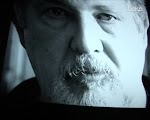



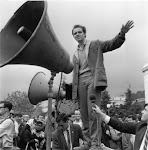

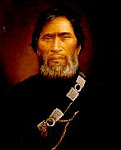









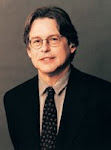





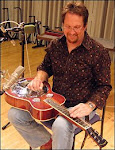
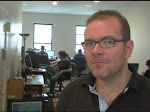


























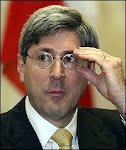



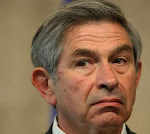


























No comments:
Post a Comment